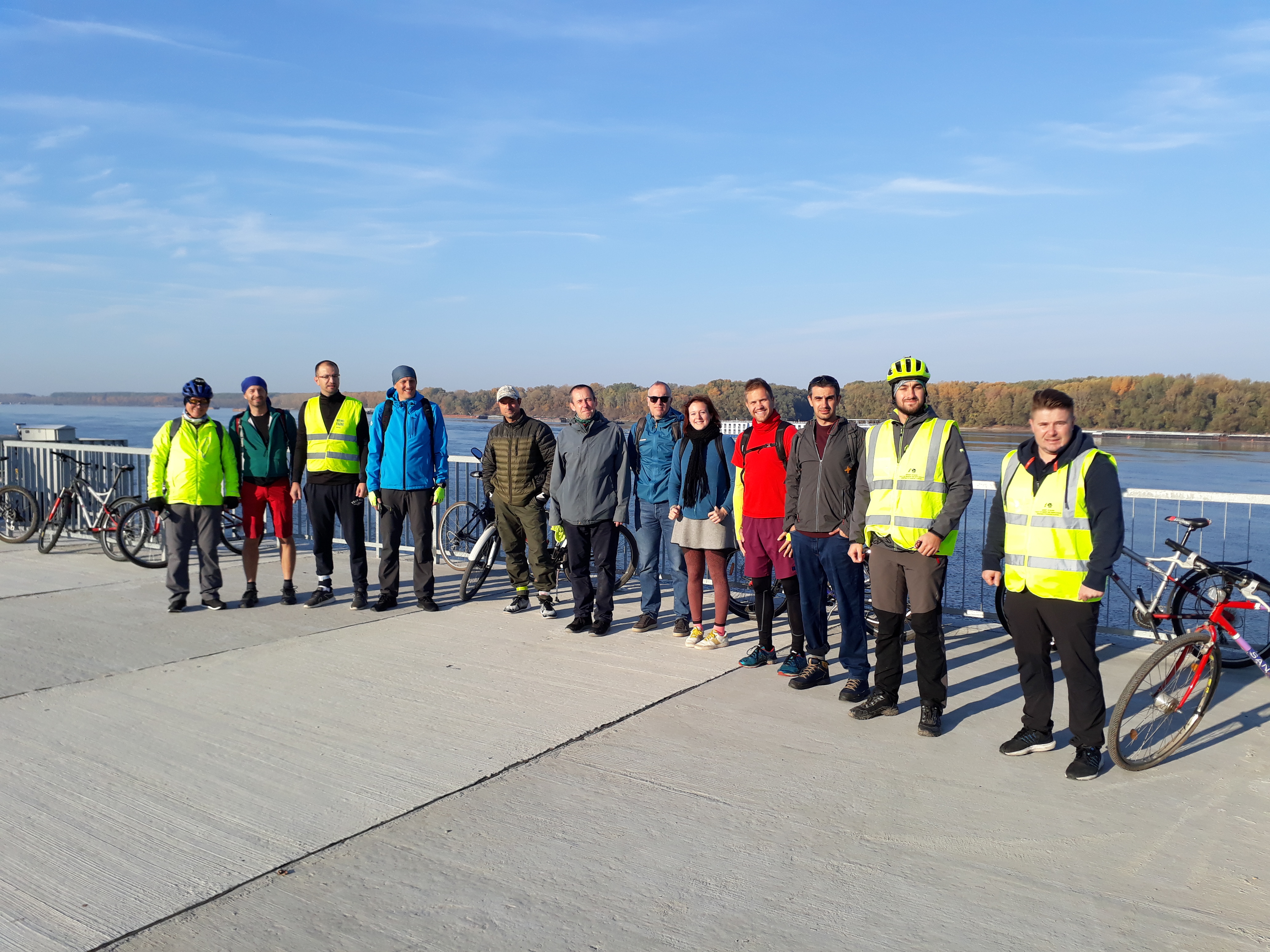SABRINA - TRAINING: EUROPEAN CERTIFICATION STANDARD BY THE EUROPEAN CYCLISTS’ FEDERATION
31-12-2021
In the framework of the SABRINA – Safer Bicycle Routes in Danube Area project, we organized an online training in cooperation with the European Cyclists’ Federation (ECF). The participants from project partners’ organizations and relevant stakeholders attended the two-day long theoretical training in September and got familiar with the European Certification Standard.
The European Certification Standard (ECS) is a methodology developed by the ECF to assess cycling routes and evaluate their quality. It can be used to survey and assess the quality of national and regional routes, and to certify EuroVelo routes if the criteria are met. It can help set up national standards where they do not exist and harmonise the different regulations in the European states.
According to the ECF, the main goals of the ECS are to:
• Improve the quality of EuroVelo, the European cycle route network, and other routes by identifying critical deficiencies and motivating decision-makers to invest in solutions to the identified problems.
• Provide quality control to motivate different target groups with varying levels of experience to use the certified trans-national routes.
The participants of the theoretical training got to know the methodology in detail during the first day of the training. After the initial introduction of the ECS, the focus was on the cycling infrastructure where through theoretical presentations and a group exercise the participants learned how continuity, route components, surface and width, gradients, attractiveness, signing and public transport are taken into account in the framework of the ECS. The first day of the training was concluded by the presentation of the ECS manual with the focus on the services (accommodation, food, drinks and rest areas, bike services and bookable offers) and the promotion.
The second day of the training was dedicated to the theoretical exam and the use of the ECS software. Aleksander Buczynski, Policy Officer – Infrastructure, and Florence Grégoire, Communications Assistant – EuroVelo from the ECF who led the training, also presented two examples of the survey results from EuroVelo 6 and 8. Besides EuroVelo 9, 11, 13, 14 these are the two of the EuroVelo routes which were or will be inspected for cycling infrastructure safety in the SABRINA project countries by our team of experts from the University of Zagreb, Faculty of Transport and Traffic Sciences (read about the inspections in Croatia, Slovenia, Austria, Bulgaria and Romania by clicking on the country’s name).
To become certified EuroVelo inspectors, the practical part of the training needs to be concluded as well. The Danube Cycle Plans project organized an ECS training at the end of October in Ruse, Bulgaria. We continued the great cooperation between both projects and so three representatives from the SABRINA project partners from Austria and Croatia attended the training and got awarded the certificates at the end. Another official EuroVelo route inspectors training was organized by the ECF in Brussels, Belgium, at the end of October. Two participants from the SABRINA training from Slovenia took part and became certified EuroVelo routes inspectors as well.
The ECF training was part of the training module in the framework of the SABRINA project. We have also provided training on the International Road Assessment Programme (iRAP) model in the context of safer bicycle infrastructure.


Photos: Practical training in Ruse, Bulgaria (Florence Grégoire, ECF)
![]()



